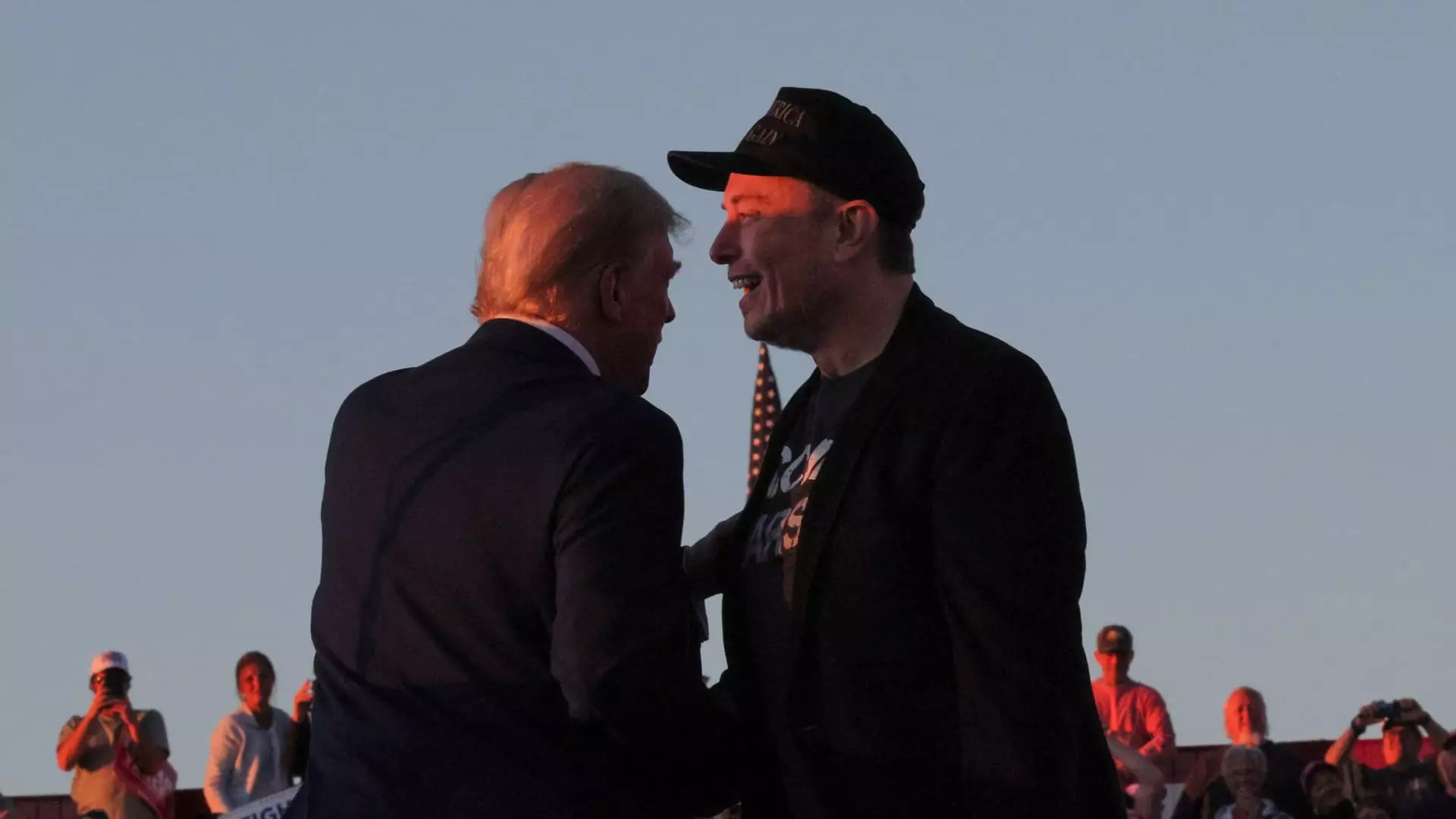As Tesla prepares to unveil its latest quarterly earnings, attention has shifted to the political intricacies associated with its CEO, Elon Musk. While investors are generally focused on financial metrics during earnings calls, a growing number of retail shareholders are voicing concerns about Musk’s political engagement, particularly his support of Donald Trump. This political discourse, amplified by Musk’s activity on social media, raises questions about its potential implications for Tesla’s shareholder value and brand integrity. As shareholders take to forums to express their apprehensions, it is clear that the intersection of politics and business is becoming increasingly complex.
One anonymous investor articulated a common sentiment: while Musk is entitled to his political opinions, his outspoken activism may conflict with his responsibilities towards shareholder interests. This notion isn’t merely anecdotal; it reflects a broader anxiety within the investment community about whether Musk’s actions — particularly his vocal support for a polarizing political figure — might negatively impact Tesla’s standing in a competitive market. The question on the minds of many is whether Tesla can ensure that its CEO’s political pursuits do not interfere with its central mission or affect sales.
Musk’s involvement stretches far beyond Tesla. He wears multiple hats as the leader of SpaceX, owner of the social platform X (formerly Twitter), and head of numerous other ventures, including Neuralink and The Boring Company. His recent comments about potentially leading a “government efficiency commission” under a Trump administration further entwine his business empire with political dynamics. Such entanglements raise concerns around priorities and focus. Investors are right to ask how many of Musk’s myriad commitments can realistically coexist without detracting from Tesla’s core business activities.
Interestingly, even as he dives into political endeavors—such as his voter registration push in Pennsylvania—Musk also champions initiatives like robotaxis and AI technology through xAI. However, the disparity in attention between progressive tech innovations and Musk’s political engagements seems to create a dissonance for shareholders who wish to see the company concentrating on its advancements rather than getting mired in electoral politics.
The financial ramifications of Musk’s political opinions are difficult to quantify. Yet analysts, including Gene Munster from Deepwater Asset Management, have attempted to gauge the impact. Munster posits that Musk’s political commentary may have caused a notable decline in Tesla’s deliveries for the quarter, estimating a shortfall of 5,000 to 10,000 vehicles. His analysis suggests that, without the political drama, Tesla might have seen a more robust performance in the U.S. market—highlighting how deeply interconnected perception and performance can be in the corporate sphere.
Despite Musk’s endeavors to shift the narrative towards ambitious technology roadmaps, investor sentiment appears fragmented. While traditional car manufacturers—now shifting towards electric vehicles (EVs)—struggle with market transitions, Tesla’s brand is experiencing a notable decline in perceived value. Interbrand’s recent analysis notes a 9% drop in Tesla’s brand rankings, pushing it down to 12th place, trailing behind time-tested competitors like Toyota and Mercedes-Benz. This decline prompts questions regarding brand strategy amid Musk’s political commentary and its broader consequences in a fiercely competitive landscape.
Experts emphasize that a CEO’s alignment with any political cause carries inherent risks. In a diverse market, where customer bases vary significantly in ideology and belief, navigating this landscape demands caution. The potential for alienating customers and investors alike looms large, particularly when the CEO’s actions evoke strong reactions. Gonzalo Brujo of Interbrand points out that Musk’s public stances could distract from the innovative strategies Tesla is pursuing, potentially driving away existing and potential customers who feel disconnected from the brand’s political engagements.
The chilling impact of such activism is reflected in Tesla’s stock performance; shares have dropped by 14% this year alone, exacerbated by a particularly rough October. In contrast, the broader Nasdaq index has maintained more stable growth. Thus, the overarching dilemma remains: how does a company like Tesla balance the personal convictions of its CEO with the interests of its shareholders and customers?
The reality is that Tesla stands at a crossroads, grappled not just with innovation and competition, but also with the political landscape shaped by its CEO. As shareholders push for clarity and assurance, it is critical for Tesla’s leadership to draw distinct lines between Musk’s personal beliefs and the company’s mission. Moving forward, greater transparency and a renewed focus on their core strengths may be essential to regain investor confidence and assure stakeholders that Tesla can thrive independent of political entanglements. This balancing act will not only define the company’s future but also illustrate the lasting implications of leadership in an increasingly polarized environment.

